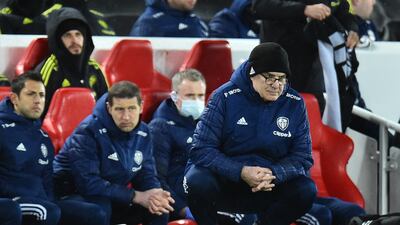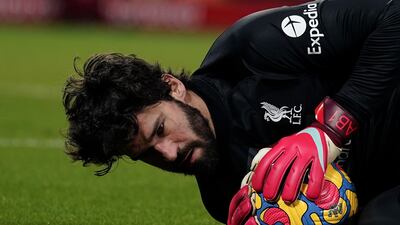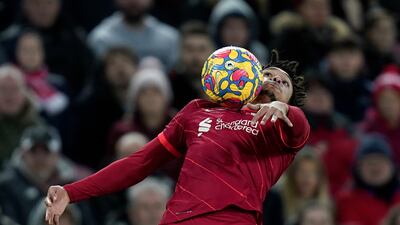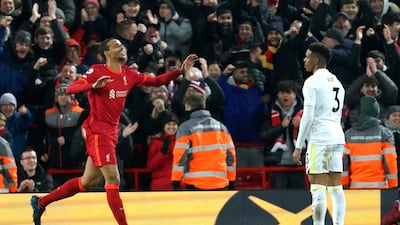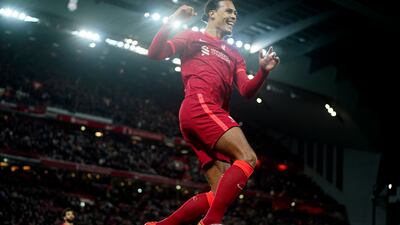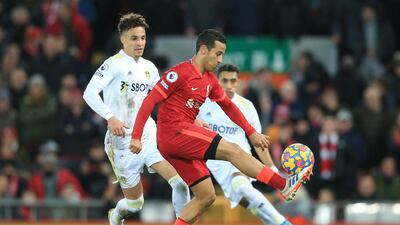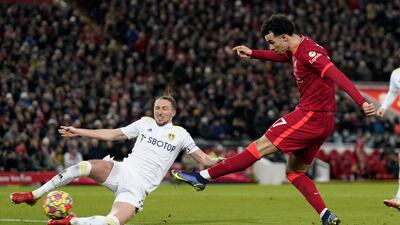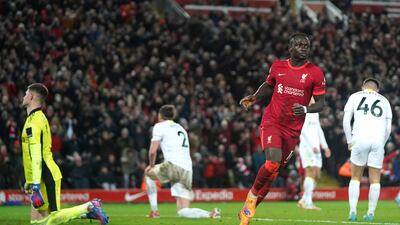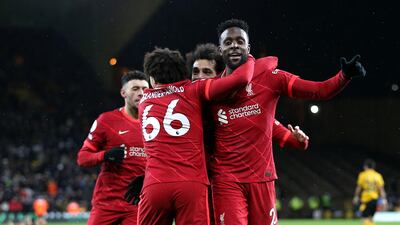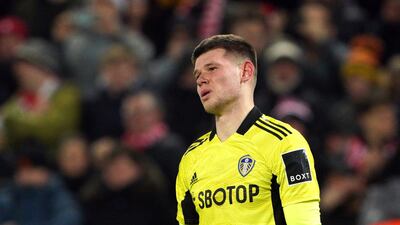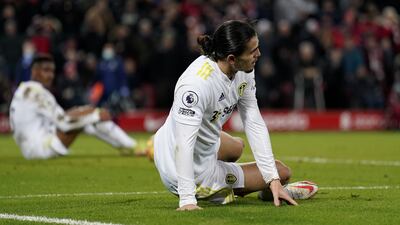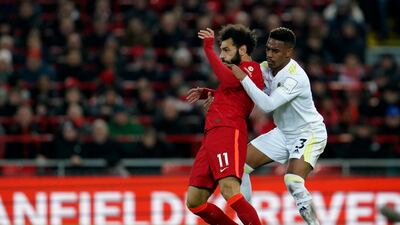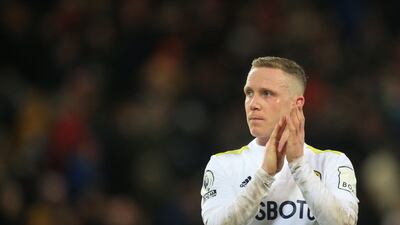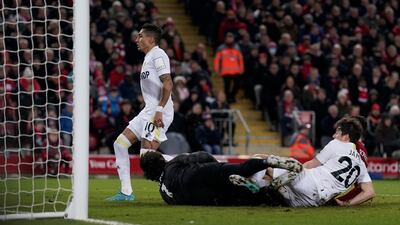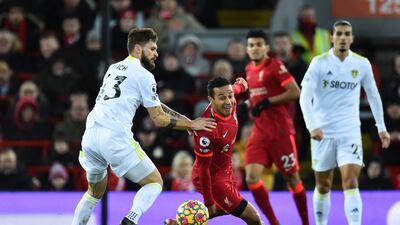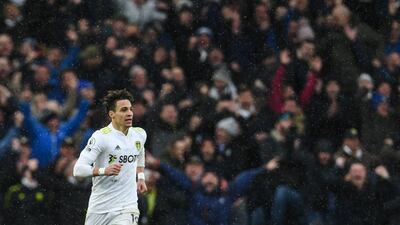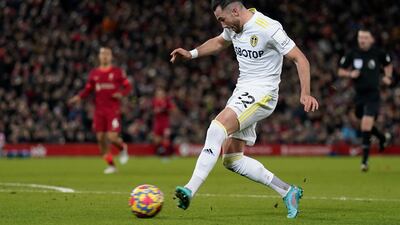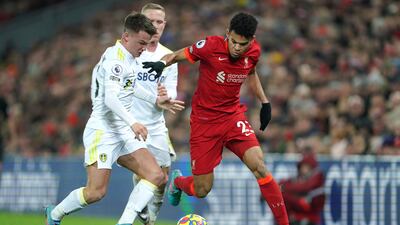The best manager in the world, to borrow Pep Guardiola’s old description, now has the worst defensive record in the Premier League.
Leeds’ 6-0 shellacking at Anfield on Wednesday left Marcelo Bielsa with a host of unflattering statistics that, as his side encounter the double act of Harry Kane and Heung-Min Son on Saturday, could get worse again.
Leeds have conceded 10 goals in their last two games, 16 in four and 34 in 10. Not since 1963-64 has an English club let in more in a 10-match spell in the top flight.
“How am I not going to question what I'm doing?” asked Bielsa at Anfield. The answers can include ill-fortune but also reflect Bielsa’s idiosyncratic tactics and the problems of playing his way.
After Sunday’s 4-2 defeat to Manchester United, Bielsa arrowed in on his difficulties in defensive midfield, a role Robin Koch, Pascal Struijk and Adam Forshaw all occupied at various points then.
It scarcely helps that Leeds are without a Euro 2020 finalist: they have conceded 41 goals in the 13 league games the injured Kalvin Phillips has sat out. He already appeared Leeds’ most important player; their fortunes in his absence have confirmed that.
If injuries have been a constant and brought instability, there are also problems in each full-back position. Luke Ayling was a revelation last season, but his form has taken a sharp downturn. On the left, Junior Firpo has been an awful signing: before buying him from Barcelona, Leeds fared better with the odd-job men Gjanni Alioski and Stuart Dallas there.
In the middle, captain Liam Cooper struggled at the start of the season, but perhaps Leeds have missed his influence of late. The Germany and Spain internationals Koch and Diego Llorente came with plenty of pedigree but each has been inconsistent: Llorente, who finished last season well, was hauled off at half-time against United after a hapless display. Struijk shows promise but can be exposed.
Liverpool v Leeds player ratings
And Bielsa’s system does leave players isolated. Man-marking all over the pitch means they have precious little cover: lose a one-on-one battle and it can bring a goal. It is no coincidence that they have conceded 29 times in six games against the Manchester clubs, Liverpool and Arsenal.
Leeds’ players have been pitched into individual battles with vastly superior players and lost them. Some duels - Firpo against Mohamed Salah in September, the youngster Cody Drameh against Gabriel Martinelli in December - feel unfair. Open games, basketball-style, favour more talented teams.
It may be simplistic to say opponents have worked Leeds out, but they are exploiting shortcomings in a bold approach. A false nine who can drag defenders out of position and open up gaps in the heart of defence for others to run into, whether Alexandre Lacazette, Phil Foden or Sadio Mane, can make Leeds look shambolic.

And because, with everyone else concentrating on man-marking, the free man is a centre-back, meaning a defender who can bring the ball out from the back can go a long way forward. Victor Lindelof helped set up United’s second goal. Joel Matip scored Liverpool’s.
“A problem with centre backs driving with the ball has become very evident,” Bielsa accepted.
Factor in Leeds’ frailties from dead-ball situations - they have conceded a league-high 28 goals from set-pieces since their promotion - and some mistakes in selection, such as picking Mateusz Klich rather than Adam Forshaw as the defensive midfielder at Everton, and it amounts to a mess.
Playing Bielsa’s brand of football is difficult. A more pragmatic approach would give players more cover, but Bielsa’s is a high-risk, high-reward attitude. But now the risk for Leeds is that their defensive deficiencies could cost them their Premier League status.
